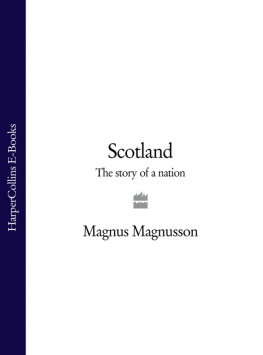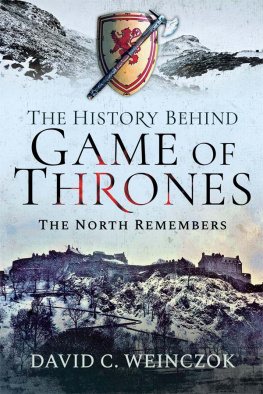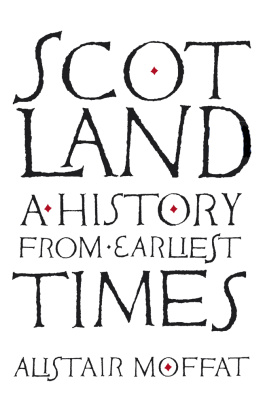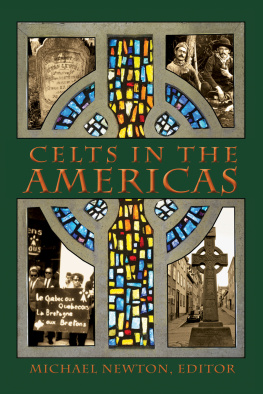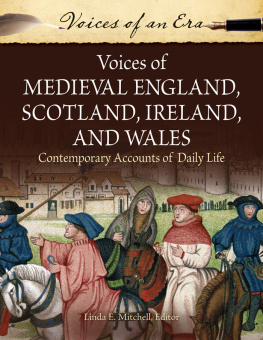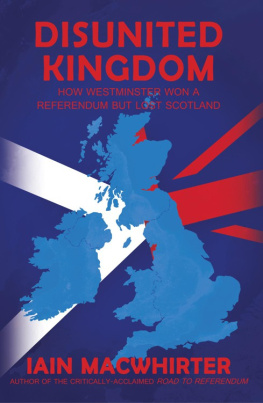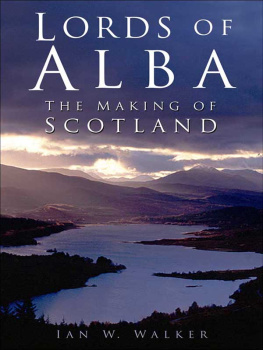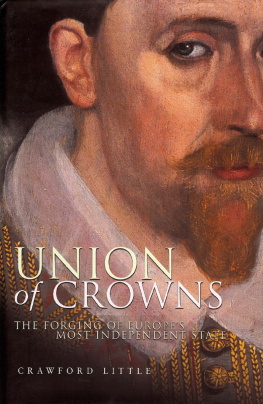Alan MacQuarrie - Medieval Scotland: The Forging of a Nation
Here you can read online Alan MacQuarrie - Medieval Scotland: The Forging of a Nation full text of the book (entire story) in english for free. Download pdf and epub, get meaning, cover and reviews about this ebook. year: 2013, publisher: The History Press, genre: History. Description of the work, (preface) as well as reviews are available. Best literature library LitArk.com created for fans of good reading and offers a wide selection of genres:
Romance novel
Science fiction
Adventure
Detective
Science
History
Home and family
Prose
Art
Politics
Computer
Non-fiction
Religion
Business
Children
Humor
Choose a favorite category and find really read worthwhile books. Enjoy immersion in the world of imagination, feel the emotions of the characters or learn something new for yourself, make an fascinating discovery.

- Book:Medieval Scotland: The Forging of a Nation
- Author:
- Publisher:The History Press
- Genre:
- Year:2013
- Rating:4 / 5
- Favourites:Add to favourites
- Your mark:
- 80
- 1
- 2
- 3
- 4
- 5
Medieval Scotland: The Forging of a Nation: summary, description and annotation
We offer to read an annotation, description, summary or preface (depends on what the author of the book "Medieval Scotland: The Forging of a Nation" wrote himself). If you haven't found the necessary information about the book — write in the comments, we will try to find it.
Medieval Scotland: The Forging of a Nation — read online for free the complete book (whole text) full work
Below is the text of the book, divided by pages. System saving the place of the last page read, allows you to conveniently read the book "Medieval Scotland: The Forging of a Nation" online for free, without having to search again every time where you left off. Put a bookmark, and you can go to the page where you finished reading at any time.
Font size:
Interval:
Bookmark:
For John and Andrew
and in memory of Hazel

KINGSHIP
AND NATION
ALAN MACQUARRIE

First published in 2004 by Sutton Publishing
The History Press
The Mill, Brimscombe Port
Stroud, Gloucestershire, GL5 2QG
www.thehistorypress.co.uk
This ebook edition first published in 2013
All rights reserved
Alan Macquarrie, 2004, 2013
The right of Alan Macquarrie, to be identified as the Author of this work
has been asserted in accordance with the Copyrights, Designs and Patents Act 1988.
This ebook is copyright material and must not be copied, reproduced, transferred, distributed, leased, licensed or publicly performed or used in any way except as specifically permitted in writing by the publishers, as allowed under the terms and conditions under which it was purchased or as strictly permitted by applicable copyright law. Any unauthorised distribution or use of this text may be a direct infringement of the authors and publishers rights, and those responsible may be liable in law accordingly.
EPUB ISBN 978 0 7524 9488 3
Original typesetting by The History Press
Contents
Preface
This work presents an overview of Scottish medieval history from the Roman invasion to the death of James II in a way that attempts to be accessible and non-controversial, while hoping to stimulate the curious to explore the subject more deeply. I hope that this book will help many people to understand Scotland better through a better understanding of our past.
My thanks are due to many colleagues and friends for their help and support while this work has been in progress. I owe a debt to the Department of Adult and Continuing Education at Glasgow University, and to my students there for their many helpful and astute comments. I must thank my son Andrew Macquarrie, whose computer skills have made this task infinitely easier and faster. My colleague Anne Clackson has read the entire manuscript and made many helpful corrections. My wife Hazel read and commented on the first third of the manuscript, and helped to make comprehensible to the general reader many concepts which were difficult enough for a specialist. Sadly, she became seriously ill while this work was in progress, and did not live to see its completion. Her courage in the face of illness has been an inspiration to me.
I alone am responsible for faults and errors which remain despite their best efforts. This book is dedicated with pride to my sons John and Andrew, who helped me through difficult times, and to Hazels memory.
ALAN MACQUARRIE
University of Strathclyde, Glasgow
Introduction
Medieval Scotland: Kingship and Nation
The Celtic peoples were once dominant across the whole of Europe north of the Alps. By the central Middle Ages, the Scots were the only Celtic people who had established a lasting unified kingdom. Wales and Brittany, subject to the same sort of pressure from a powerful neighbour, retained linguistic distinctness but lost political nationhood; Ireland became a patchwork of petty kingdoms. So why is Scotlands medieval history so different from theirs?
Themes
There are a number of contributory factors to Scottish distinctness which this book will explore. One of these is kingship. In most Celtic nations, very strikingly in Ireland, kingship tends to become fragmented and debased. Heads of quite small clans and kin-groups were entitled to be called r , king. This does not happen in Scotland, where from an early time kingship represented power and prestige. We will seek to explore the origins and development of Scottish kingship, and to explain how the fact of being a self-consciously unified kingdom contributed to Scotlands struggle for freedom in the Middle Ages.
Another factor is national identity. The Scots were a not so much a pure Celtic race as an admixture of Celtic peoples Gael, Picts and Britons with strong non-Celtic elements blending in, notably Norse and English. There was perhaps no more hybrid nation in the north-west of Europe. Did this identity, transcending ethnic and linguistic divisions, give Scotland some kind of mongrel robustness?
Another consideration, perhaps a contrast to these, is the fact of regional and local identities and social cohesion. Scots today have a strong sense of attachment to their locality as well as to their nation, and this may always have been the case. Sometimes these local attachments have transcended hierarchical ones, and there is evidence that medieval Scotland was a more open society, with better opportunities for social mobility, than some others. It would be an exaggeration to say that medieval Scotland was egalitarian or democratic; but the striking success of presbyterianism in Scotland has to be explained somehow. Regional and local loyalties may also help to explain how the struggle for identity continued even at times when monarchy and central government were weak.
Like all its medieval neighbours, Scotland was a Christian society. Although English, Gaelic and British elements all went together to make up Scottish Christianity, the resulting Church was a coherent and homogeneous blend. Until the very end of the medieval period, Scotland did not have its own archbishop; but it had a self-consciously national Church, an Ecclesia Scoticana , which powerfully preached the virtues of national defence, freedom and patriotism in times of crisis. The Scottish Church has always been notably loyal to Scotland.
Periods
The history of medieval Scotland can be conveniently divided into three periods:
1. Between the end of Roman Britain and the coming of the Vikings, there was a long period of equilibrium between the different races occupying Scotland Picts, Gael, Britons and Angles. This period saw the conversion of Scotland to Christianity. The shock of the Viking onslaught shattered this balance, and prepared the way for the unification of these disparate peoples, plus the Norse, into a single kingdom under a new and successful dynasty. By the middle of the eleventh century Scotland had recognisably taken on the geographical and ethnic form that it has today.
2. The High Middle Ages was a period of creativity and relative prosperity for Scotland. The descendants of Queen Margaret transformed their Celtic kingdom into a cosmopolitan feudal state within the unity of Western Christendom. Relations with Scotlands most powerful neighbour, England, were for the most part harmonious through the recognition of distinctness and independence, to the advantage of both kingdoms.
3. After 1286, Scotlands history becomes the story of a struggle against successive attempts at conquest and incorporation. The story is one of spectacular triumphs and dismal failures on both sides. The monarchy was at times strong, at other times weak; but always the struggle for national identity was unremitting. There were modest successes as well. Scotland developed distinctiveness in education, architecture and literature, and at the end of the period enjoyed a remarkable cultural renaissance.
Geography
Much early and later history is determined by geographical factors. These determine the nature of an economy and the pattern of trade and settlement. Important factors include the relationship of land and water masses, altitude and climate.
The most obvious point about the area which we now call Scotland is that it occupies the northern third of an island, some 550 miles long and varying in breadth between 300 miles and 50 miles. There is no natural boundary between Scotland and England, but the narrowest point or waist of Britain is formed by the great sea inlets of the Firths of Forth and Clyde, and this isthmus has at times formed an important boundary between political divisions in Britain. It was here that the Roman emperor Antoninus chose to mark the northern frontier of the Roman empire by a solid wall guarded by a network of roads and forts. But the other, more substantial, Roman wall built by Hadrian shows that the line of the Tyne and Solway could also be regarded as a defensible frontier. The present Anglo-Scottish border, having hardly changed since the twelfth century, represents something of a compromise between the two Roman attempts to find a frontier for the island of Britain.
Next pageFont size:
Interval:
Bookmark:
Similar books «Medieval Scotland: The Forging of a Nation»
Look at similar books to Medieval Scotland: The Forging of a Nation. We have selected literature similar in name and meaning in the hope of providing readers with more options to find new, interesting, not yet read works.
Discussion, reviews of the book Medieval Scotland: The Forging of a Nation and just readers' own opinions. Leave your comments, write what you think about the work, its meaning or the main characters. Specify what exactly you liked and what you didn't like, and why you think so.

